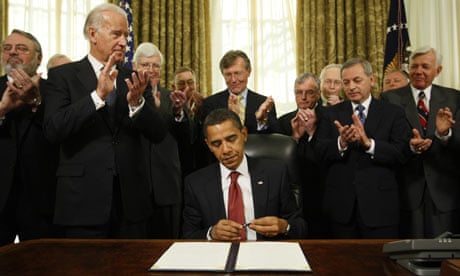 |
The president-elect could very quickly dismantle Obama’s legacy of executive action.
President Obama’s administration has been defined by executive actions issued in response to congressional gridlock. At every stage, conservatives challenged those actions as violations of the separation of powers, and with the election of Donald J. Trump, each of them can now easily be rescinded. Though the Supreme Court will expand with a Trump nominee to replace Justice Scalia, its docket will get a lot smaller. What Obama’s pen-and-phone giveth, Trump’s Sharpie-and-Twitter will taketh away.
First, the Court’s immigration docket is set to shrink. In June 2016, the Supreme Court divided four-to-four on the legality of Obama’s executive action on immigration, known as Deferred Action for Parents of Americans and Lawful Permanent Residents (DAPA). Currently, the case is pending before the federal district court in Brownsville, Texas, but it won’t be for long. Once the policy is rescinded, as Mr. Trump has promised it will be, Texas will move to dismiss the case. A bigger question looms over Obama’s 2012 immigration action, known as Deferred Action for Childhood Arrivals. DACA was not held up by the courts, and nearly 1.5 million aliens have received lawful presence under it. President Obama may renew those benefits for an additional two years, but Trump could cancel them instantly.
 |
Religious charities, including the Little Sisters,
objected to Obamacare’s contraceptive mandate.
|
Second, the Court will not have to decide another thorny religious-liberty conflict. Last May, the Justices were unable to resolve the appeal of the Little Sisters of the Poor, an order of nuns that objected to Obamacare’s contraceptive mandate. Religious charities, including the Little Sisters, objected to Obamacare’s contraceptive mandate. The government insisted that female employees of the charities must be provided contraceptive coverage through the same health-insurance plan that covered their regular doctors’ visits. The charities did not object to their employees using contraceptive coverage, but wanted it to be provided through a different plan entirely separate from their own agreements with insurers. Through one simple regulatory process, Trump could satisfy the Little Sisters of the Poor while providing female employees contraceptive coverage on a separate plan. Though it would create a slight burden for the employees, they’d get their coverage, and the Nuns would not feel complicit in sin. The Justices, who were torn by this difficult ethical question, could take a pass.Read the rest from Josh Blackman HERE.
If you like what you see, please "Like" us on Facebook either here or here. Please follow us on Twitter here.


No comments:
Post a Comment